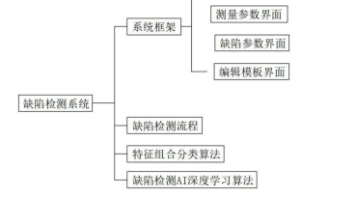errno --详解
写在前面:当linux中的 api函数发生异常时,一般会将errno变量(需include errno.h)赋一个整数值,不同的值表示不同的含义,可以通过查看该值推测出错的原因,在实际编程中用这一招解决了不少原本看来莫名其妙的问题。但是errno是一个数字,代表的具体含义还要到errno.h中去阅读宏定义,而每次查阅是一件很繁琐的事情。有下面几种方法可以方便的得到错误信息(1)void per..
写在前面:
当linux中的 api函数发生异常时,一般会将errno变量(需include errno.h)赋一个整数值,不同的值表示不同的含义,可以通过查看该值推测出错的原因,在实际编程中用这一招解决了不少原本看来莫名其妙的问题。但是errno是一个数字,代表的具体含义还要到errno.h中去阅读宏定义,而每次查阅是一件很繁琐的事情。有下面几种方法可以方便的得到错误信息
(1)void perror(const char *s)
函数说明
perror ( )用来将上一个函数发生错误的原因输出到标准错误(stderr),参数s 所指的字符串会先打印出,后面再加上错误原因 字符串。此错误原因依照全局变量 errno 的值来决定要输出的字符串。
(2) char *strerror(int errno)
将错误代码转换为字符串错误信息,可以将该字符串和其它的信息组合输出到用户界面例如
fprintf(stderr,“error in CreateProcess %s, Process ID %d “,strerror(errno),processID)
注:假设processID是一个已经获取了的整形ID
(3)printf(”%m”, errno);
另外不是所有的地方发生错误的时候都可以通过error获取错误代码,例如下面的代码段
/注:下面的头文件使用""而没有直接使用尖括号是因为博客大巴中尖括号当作html符号,所以其内部的头文件名字会被直接忽略/
#include"stdio.h"
#include "stdlib.h"
#include "errno.h"
#include "netdb.h"
#include "sys/types.h"
#include "netinet/in.h"
int main (int argc, char *argv[])
{
struct hostent *h;
if (argc != 2)
{
fprintf (stderr ,"usage: getip address\n");
exit(1);
}
/* 取得主机信息 */
if((h=gethostbyname(argv[1])) == NULL)
{
/* 如果gethostbyname 失败,则给出错误信息 */
//gethostbyname()返回对应于给定主机名的包含主机名字和地址信息的hostent结构的指针。结构的声明与gethostbyaddr()中一致。
herror(“gethostbyname”);
exit(1);
}
/* 列印程序取得的信息 */
printf(“Host name : %s\n”, h->h_name);
printf(“IP Address : %s\n”, inet_ntoa (*((struct in_addr *)h->h_addr)));
return 0;
}
/***********************************/
通过上面的代码可以看到:使用gethostbyname()函数,你不能使用perror()来输出错误信息(因为错误代码存储在 h_errno 中而不是errno 中。所以,你需要调用herror()函数。
你简单的传给gethostbyname() 一个机器名(“bbs.tsinghua.edu.cn”),然后就从返回的结构struct hostent 中得到了IP 等其他信息.程序中输出IP 地址的程序需要解释一下:h->h_addr 是一个char,但是inet_ntoa()函数需要传递的是一个struct in_addr 结构。所以上面将h->h_addr 强制转换为struct in_addr,然后通过它得到了所有数据。
errno.h中定义的错误代码值如下:
查 看错误代码errno是调试程序的一个重要方法。当linuc C api函数发生异常时,一般会将errno变量(需include errno.h)赋一个整数值,不同的值表示不同的含义,可以通过查看该值推测出错的原因。在实际编程中用这一招解决了不少原本看来莫名其妙的问题。比较 麻烦的是每次都要去linux源代码里面查找错误代码的含义,现在把它贴出来,以后需要查时就来这里看了。
以下来自linux 2.4.20-18的内核代码中的/usr/include/asm/errno.h
#ifndef _I386_ERRNO_H
#define _I386_ERRNO_H
#define EPERM 1 /* Operation not permitted /
#define ENOENT 2 / No such file or directory /
#define ESRCH 3 / No such process /
#define EINTR 4 / Interrupted system call /
#define EIO 5 / I/O error /
#define ENXIO 6 / No such device or address /
#define E2BIG 7 / Arg list too long /
#define ENOEXEC 8 / Exec format error /
#define EBADF 9 / Bad file number /
#define ECHILD 10 / No child processes /
#define EAGAIN 11 / Try again /
#define ENOMEM 12 / Out of memory /
#define EACCES 13 / Permission denied /
#define EFAULT 14 / Bad address /
#define ENOTBLK 15 / Block device required /
#define EBUSY 16 / Device or resource busy /
#define EEXIST 17 / File exists /
#define EXDEV 18 / Cross-device link /
#define ENODEV 19 / No such device /
#define ENOTDIR 20 / Not a directory /
#define EISDIR 21 / Is a directory /
#define EINVAL 22 / Invalid argument /
#define ENFILE 23 / File table overflow /
#define EMFILE 24 / Too many open files /
#define ENOTTY 25 / Not a typewriter /
#define ETXTBSY 26 / Text file busy /
#define EFBIG 27 / File too large /
#define ENOSPC 28 / No space left on device /
#define ESPIPE 29 / Illegal seek /
#define EROFS 30 / Read-only file system /
#define EMLINK 31 / Too many links /
#define EPIPE 32 / Broken pipe /
#define EDOM 33 / Math argument out of domain of func /
#define ERANGE 34 / Math result not representable /
#define EDEADLK 35 / Resource deadlock would occur /
#define ENAMETOOLONG 36 / File name too long /
#define ENOLCK 37 / No record locks available /
#define ENOSYS 38 / Function not implemented /
#define ENOTEMPTY 39 / Directory not empty /
#define ELOOP 40 / Too many symbolic links encountered /
#define EWOULDBLOCK EAGAIN / Operation would block /
#define ENOMSG 42 / No message of desired type /
#define EIDRM 43 / Identifier removed /
#define ECHRNG 44 / Channel number out of range /
#define EL2NSYNC 45 / Level 2 not synchronized /
#define EL3HLT 46 / Level 3 halted /
#define EL3RST 47 / Level 3 reset /
#define ELNRNG 48 / Link number out of range /
#define EUNATCH 49 / Protocol driver not attached /
#define ENOCSI 50 / No CSI structure available /
#define EL2HLT 51 / Level 2 halted /
#define EBADE 52 / Invalid exchange /
#define EBADR 53 / Invalid request descriptor /
#define EXFULL 54 / Exchange full /
#define ENOANO 55 / No anode /
#define EBADRQC 56 / Invalid request code /
#define EBADSLT 57 / Invalid slot /
#define EDEADLOCK EDEADLK
#define EBFONT 59 / Bad font file format /
#define ENOSTR 60 / Device not a stream /
#define ENODATA 61 / No data available /
#define ETIME 62 / Timer expired /
#define ENOSR 63 / Out of streams resources /
#define ENONET 64 / Machine is not on the network /
#define ENOPKG 65 / Package not installed /
#define EREMOTE 66 / Object is remote /
#define ENOLINK 67 / Link has been severed /
#define EADV 68 / Advertise error /
#define ESRMNT 69 / Srmount error /
#define ECOMM 70 / Communication error on send /
#define EPROTO 71 / Protocol error /
#define EMULTIHOP 72 / Multihop attempted /
#define EDOTDOT 73 / RFS specific error /
#define EBADMSG 74 / Not a data message /
#define EOVERFLOW 75 / Value too large for defined data type /
#define ENOTUNIQ 76 / Name not unique on network /
#define EBADFD 77 / File descriptor in bad state /
#define EREMCHG 78 / Remote address changed /
#define ELIBACC 79 / Can not access a needed shared library /
#define ELIBBAD 80 / Accessing a corrupted shared library /
#define ELIBSCN 81 / .lib section in a.out corrupted /
#define ELIBMAX 82 / Attempting to link in too many shared libraries /
#define ELIBEXEC 83 / Cannot exec a shared library directly /
#define EILSEQ 84 / Illegal byte sequence /
#define ERESTART 85 / Interrupted system call should be restarted /
#define ESTRPIPE 86 / Streams pipe error /
#define EUSERS 87 / Too many users /
#define ENOTSOCK 88 / Socket operation on non-socket /
#define EDESTADDRREQ 89 / Destination address required /
#define EMSGSIZE 90 / Message too long /
#define EPROTOTYPE 91 / Protocol wrong type for socket /
#define ENOPROTOOPT 92 / Protocol not available /
#define EPROTONOSUPPORT 93 / Protocol not supported /
#define ESOCKTNOSUPPORT 94 / Socket type not supported /
#define EOPNOTSUPP 95 / Operation not supported on transport endpoint /
#define EPFNOSUPPORT 96 / Protocol family not supported /
#define EAFNOSUPPORT 97 / Address family not supported by protocol /
#define EADDRINUSE 98 / Address already in use /
#define EADDRNOTAVAIL 99 / Cannot assign requested address /
#define ENETDOWN 100 / Network is down /
#define ENETUNREACH 101 / Network is unreachable /
#define ENETRESET 102 / Network dropped connection because of reset /
#define ECONNABORTED 103 / Software caused connection abort /
#define ECONNRESET 104 / Connection reset by peer /
#define ENOBUFS 105 / No buffer space available /
#define EISCONN 106 / Transport endpoint is already connected /
#define ENOTCONN 107 / Transport endpoint is not connected /
#define ESHUTDOWN 108 / Cannot send after transport endpoint shutdown /
#define ETOOMANYREFS 109 / Too many references: cannot splice /
#define ETIMEDOUT 110 / Connection timed out /
#define ECONNREFUSED 111 / Connection refused /
#define EHOSTDOWN 112 / Host is down /
#define EHOSTUNREACH 113 / No route to host /
#define EALREADY 114 / Operation already in progress /
#define EINPROGRESS 115 / Operation now in progress /
#define ESTALE 116 / Stale NFS file handle /
#define EUCLEAN 117 / Structure needs cleaning /
#define ENOTNAM 118 / Not a XENIX named type file /
#define ENAVAIL 119 / No XENIX semaphores available /
#define EISNAM 120 / Is a named type file /
#define EREMOTEIO 121 / Remote I/O error /
#define EDQUOT 122 / Quota exceeded /
#define ENOMEDIUM 123 / No medium found /
#define EMEDIUMTYPE 124 / Wrong medium type */
#endif
同时也可以使用strerror()来自己翻译
如:
#include <stdio.h>
#include <string.h>
#include <errno.h>
int main(void)
{
int fd;
extern int errno;
if((fd = open("/dev/dsp",O_WRONLY)) < 0)
{
printf("errno=%d\n",errno);
char * mesg = strerror(errno);
printf("Mesg:%s\n",mesg);
}
exit(0);
}
dsp设备忙的话将输出如下:
errno=16
Mesg:Device or resource busy
文章来源参考:https://blog.csdn.net/21aspnet/article/details/6740110
更多推荐
 已为社区贡献11条内容
已为社区贡献11条内容








所有评论(0)